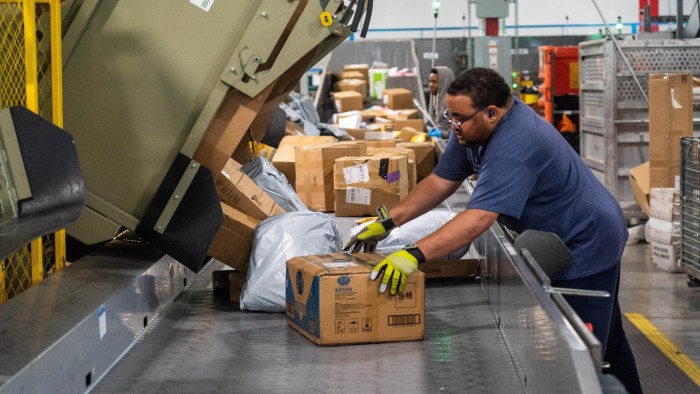Monrovia, 29 August 2025 — In a sweeping change that is reshaping global e-commerce and postal logistics, the United States government has officially eliminated the longstanding “de minimis” exemption, which allowed small-value packages—generally under USD 800—to enter the U.S. duty-free. Originating in 1938 and expanded in recent years, this exemption has facilitated the unhindered flow of millions of small-value parcels. However, under an executive order signed by President Donald Trump on 30 July 2025, the rule will now be suspended effective 29 August 2025, prompting widespread disruption as many countries’ postal services respond by halting U.S.-bound deliveries.
What Changed?
Previously, international packages valued at under USD 800 were exempted from import duties, enabling inexpensive online purchases from platforms like Amazon, Etsy, Shein, and Temu. The Trump administration argued that the exemption has become a loophole exploited to evade tariffs and facilitate trafficking of illicit goods like fentanyl. Now, all parcels—regardless of value—will be subject to customs duties or a flat fee ranging from USD 80 to USD 200 for a six-month transition period. The move is intended to bolster U.S. tariff revenue (projected at up to USD 10 billion annually) and enhance border safety.
A Ripple Effect: Postal Suspensions Around the World
Given the abruptness of the changes—and lack of clarity over how duties should be collected and administered—postal operators across the globe have taken drastic action, suspending or limiting shipments to the U.S. The disruptions are widespread:
Europe
Dozens of European nations have paused or restricted U.S.-bound deliveries. These include:
- United Kingdom (Royal Mail)
- Germany (Deutsche Post, DHL Parcel)
- France, Italy, Belgium, Austria, Sweden, Denmark, and others under the PostEurop umbrella
- Many services are citing the need to retool customs systems to cope with new requirements and uncertainty over procedures.
Asia–Pacific
Postal services in several Asian and Pacific countries have also suspended shipments:
- Singapore, Thailand, Japan, India, Taiwan, South Korea, and Australia
- These services say they need more time to align with new data and duty-collection requirements, especially given the tight transition timeline.
Australia & New Zealand
- Australia Post has temporarily stopped most parcel deliveries to the U.S. and Puerto Rico—excluding gifts under USD 100, letters, and documents—while working on new billing systems to manage tariffs.
- New Zealand Post has reportedly warned about higher costs and responsibilities shifting to recipients, though some basic exemptions remain.
Americas
- Postal services in Mexico have also suspended shipments in response to the policy shift.
Global Summary
The Universal Postal Union (UPU), which coordinates global mail services, confirmed that over 30 countries have limited or halted shipments to the U.S., citing insufficient preparation time and unclear protocols under the new rules. The UPU is now working with U.S. authorities to develop compliance solutions.
What It Means for Consumers and Businesses
- U.S. consumers who relied on affordable international postal deliveries—especially small independent buyers—can expect longer wait times, potential returns, or packages sent back to sender due to tariff complications.
- Small businesses globally, including African e-commerce sellers, may face inflated shipping costs, complicated customs compliance, and reduced access to U.S. markets.
- Postal services must overhaul systems to integrate new customs data requirements, duty collection methods, and pricing models—no easy feat under tight deadlines.
- Gifts and personal items remain exempt up to certain values ($100 for gifts, $200 for souvenirs), though many services are choosing to suspend even these to streamline operations temporarily.
In Summary
What began as a change in U.S. customs policy—from an executive order signed on 30 July 2025, to full enactment on 29 August 2025—has unfolded into a global shipping crisis. Postal services across Europe, Asia, Australia, Mexico, and more have responded in lockstep, suspending deliveries to avoid regulatory chaos. The implications are far-reaching: disrupted trade, increased costs, and strained postal infrastructure worldwide.
For African businesses and consumers, the fallout will require urgent attention—seeking alternative shipping methods, re-evaluating costs, and staying alert to further developments from both UPU and U.S. customs authorities.

Leave a Reply